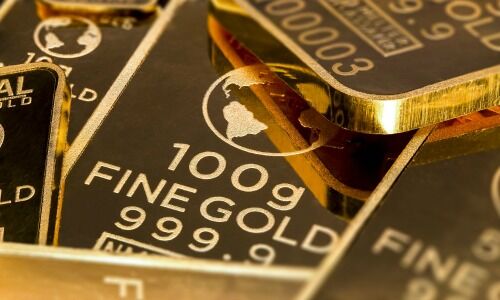Gold Demand Sinks on Covid-19 Impact
The effects of the Covid-19 pandemic continues to be felt in the gold market, with global gold demand falling by 19 percent year-on-year to 892 tons in the third quarter of 2020.
While this is the lowest quarterly total since the third quarter of 2009, the period also saw significant growth in investment demand, which rose by 21 percent year-on-year, according to the World Gold Council, which published its quarterly «Gold Demand Trends» on Thursday.
During the quarter, investors globally bought 222.1 tons of gold bars and coins (49 percent higher year-on-year) and an additional 272.5 tons through gold-backed ETFs. Covid-19 took its toll on the physical market, with jewelry demand 29 percent lower on-year at 333 tons – its third consecutive quarterly drop. Overall demand year-to-date of 2,972.1 tons was 10 percent lower compared to the same period in 2019, World Gold Council said in the report.
«The driving issue has been cover and uncertainty about the nature and form of economic recovery – which many now believe will be K-shaped, with some sectors doing well, and others suffering in the longer term – along with uncertainty over governments committing additional support for the economy,» Andrew Naylor, WGC head of ASEAN and public policy, explained to finews.asia.
Investor Demand
Inflows into gold-backed ETFs inflows continued for the eighth straight quarter, though at a slower pace than the first half of the year, taking global holdings to a new record of 3,880 tons. So far this year, 1,003 tons have been added globally.
«It's times like this when investors look for a safe haven and good diversifier and emergency liquidity when they need it,» Naylor said, explaining the continued motivation of investors to add to their holdings.
He noted that economic uncertainty, opportunity cost, and the subdued jewelry market as factors that will drive the yellow metals' demand in the next quarter. Negative real rates, expectations of a weaker USD and stimulus packages continue to paint a favorable backdrop for gold, he said.
U.S. Election
Commenting on the upcoming U.S. election’s potential effects on the gold market, Naylor opined that it is unlikely to have as great an impact as it did in 2016.
«There will be some market reaction whoever wins, but in the short term, it is likely to be business as usual. However, there is a concern among investors that a too-close-to-call result may lead to a prolonged period of uncertainty,» he said.
How the U.S.-China relationship unfolds is more important going forward, Naylor said. «Longer-term structural changes are going on, and they will persist no matter who wins in the U.S.»



























